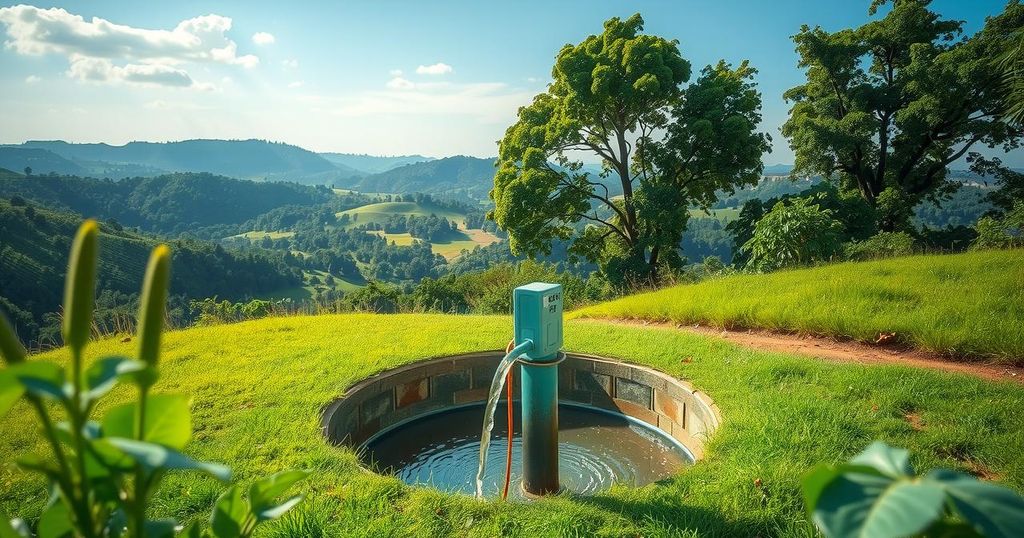World news
ABRO, AFRICA, BUJUMBURA DISTRICT, BURUNDI CONFERENCE, CI, CIMPAYE VALENTINE, DISASTER MANAGEMENT, DISASTER RELIEF, EMERGENCY RESPONSE, FLOODING, INTERNATIONAL AID, NATURAL DISASTERS, NYABUNYEGERI, ORG, PATRICK ABRO, RUBIRIZI, RUBURIZI, SURVIVORS, THE UNITED METHODIST CHURCH, UGANDA, UMNEWS, UNITED METHODIST BOARD OF GLOBAL MINISTRIES, UNITED METHODIST CHURCH, UNITED METHODIST CHURCH OF BURUNDI, UNITED METHODIST COMMITTEE ON RELIEF, VALENTINE
David O'Sullivan
0 Comments
Borehole Project in Burundi Provides Hope and Healing for Communities
The United Methodist Church has drilled a borehole in Ruburizi, Burundi, providing access to clean drinking water for 5,000 residents. Funded by the United Methodist Committee on Relief, the project aims to combat water-borne diseases and enhance community welfare. The initiative has significantly reduced the distance for water collection, improved local health, and contributed to economic development.
In an effort to combat water-borne diseases prevalent in the region, The United Methodist Church has successfully drilled a borehole in the Burundi Annual Conference. This initiative, funded by the United Methodist Committee on Relief, now provides access to drinking water for 5,000 residents in Ruburizi, significantly improving their quality of life.
Following the devastating natural disasters of 2022, the project began in March 2023 as part of the “Relief and Recovery Assistance to Flood Survivors at Nyabunyegeri, Rubirizi and Kirekura.” Patrick Abro, a missionary for the United Methodist Board of Global Ministries, emphasized the borehole’s significance in restoring access to clean water in the affected areas.
Due to flooding and landslides that damaged existing infrastructure, Ruburizi faced acute water shortages. Rev. Cimpaye Valentine highlighted that the borehole’s objective was to enhance access to clean drinking water and alleviate related health issues, particularly for women and girls, who often faced the risk of violence during lengthy water collection journeys.
The borehole’s impact on the community is profound, reducing the distance women and girls must travel for water from five miles to a mere one-third mile. It boasts a capacity of over 160 gallons per hour, equating to 3,840 gallons daily. Abro articulated the borehole as a symbol of hope and renewal for the community.
Local residents have expressed their gratitude for the initiative. Christine Ntamubano, a 70-year-old widow, remarked on the reduced risk of illness due to better access to drinking water. The project has even correlated with an increase in church attendance and community membership, as noted by Rev. Buratangaje Japhet, indicating a positive social change.
The borehole has also supported local economic improvement, allowing children to engage in agricultural activities more easily. Beneficiary Manirakiza Geneviève stated that watering vegetable fields is now simpler, contributing to family health. Sector manager Nshimirimana Japhet recognized the vital role of the borehole in enhancing public health and called for the extension of drinking water supplies to neighboring areas.
Valentine aptly characterized the borehole as more than mere infrastructure; it reflects a communal response to pressing needs and showcases The United Methodist Church’s commitment to humanitarian aid in times of crisis.
The installation of the borehole in Ruburizi has transformed the local community, providing essential access to clean drinking water for approximately 5,000 residents. This initiative not only addresses health concerns stemming from water-borne diseases but has also promoted social cohesion and local economic development. The testimonials from community members underscore the meaningful impact of such projects and the importance of ongoing support in ensuring sustainability and awareness of public health issues.
Original Source: www.umnews.org




Post Comment